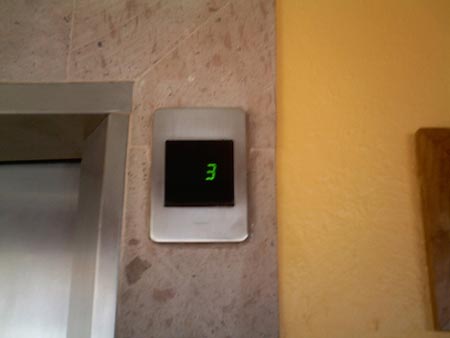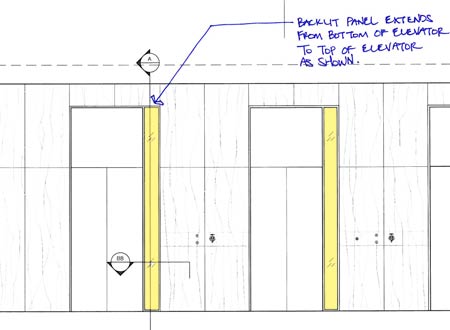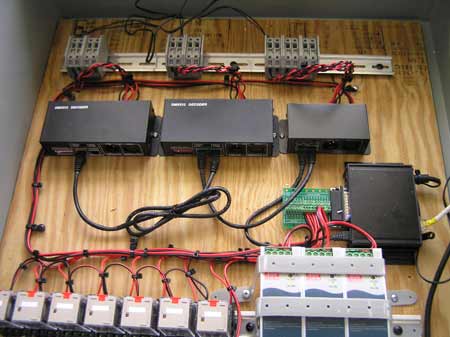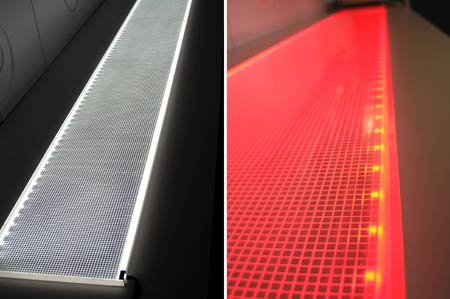On Our Desks: Chic Elevator Lantern Controls
Contact closures, relays, Cue servers, DMX decoder units, din rails… if you’re a conceptual designer, you’re probably not too interested in what those mean, but when implemented through a thoughtful electrical engineering process, these items can add a whole new element of fluctuation to your spaces.
Imagine synchronizing the vertical movement of an elevator with a lighting effect that “speaks” to the waiting patrons. At the renovation of 1828 L Street in Washington, D.C., lighting designers MCLA and architects DEP Designs envisioned a full scale elevator lantern that capitalized on the dynamics of time and movement (fitting for an elevator lobby). The elevator call lanterns take on a modern architecture with full height panels of backlit glass. Goodbye, standard call buttons!

Standard Elevator Indicator Buttons – small scale, appear “additive” to the architecture (Image Credit: robinsonsmay)

Re-designed Backlit Lanterns – large scale, integral to the architecture
The design intent was to have the elevator lanterns illuminated at a dim level at all times. When the elevators descend to the main lobby at the first floor, the lanterns slowly brighten up to 100%, signifying the arrival of the elevator cab. Pretty cool visual reinforcement of movement!

Custom controls by GPI sync the elevator control system with our Flat-Lite™ LED panels
Only one of the elevators descends to the basement; the designers wanted the lantern at this elevator to illuminate in a red color. At this area, GPI designed a dual-illumination red and white LED panel to backlight the glass. The colored and white settings were engineered to be controlled independently. When the cab is above ground, the lantern remains white like the others. The relay to the red LED string only fires when the elevator drops to the basement level, at which time the LED panel changes to its red hue.

Flat-Lite™ LED panel on white and red settings
This is just one job that goes to show the value of integration when it comes to backlit features. As you’ll often hear us advocate, to have a truly well-executed backlit feature, it’s much more about the LED panels themselves. In this case, the LED panels were properly designed to both seamlessly illuminate the surface and interface with the existing elevator control system, for a lighting effect that strengthens the architecture. The challenges of the project were perfectly suited for our team and we’re looking forward to publishing the final installation photographs soon!
